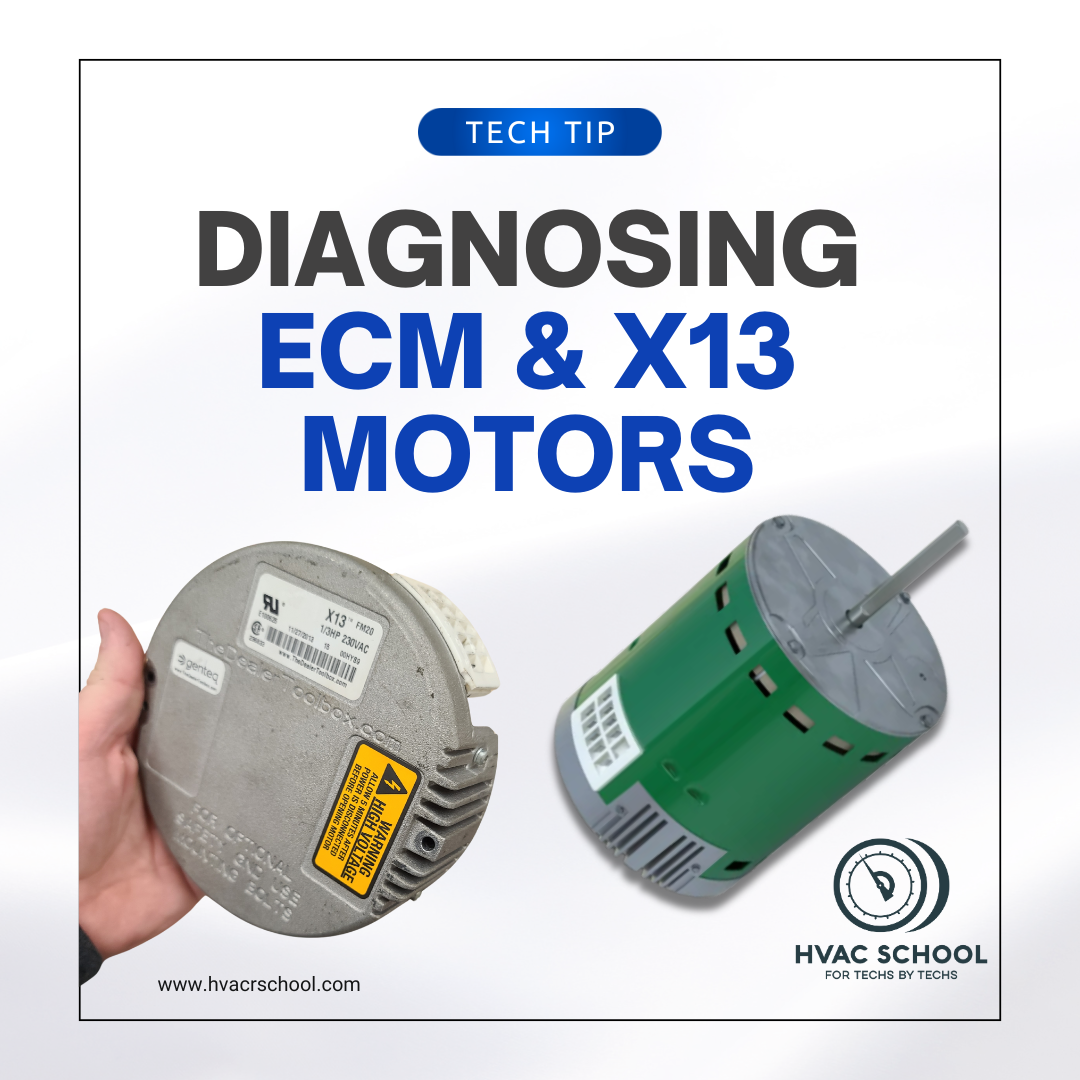Get Tech Tips
Subscribe to free tech tips.
Does Refrigerant Get Old or Wear Out?

Over the years, I have heard technicians say that refrigerant can wear out or “lose its blend” by sitting in a tank.
Refrigerant does not wear out or “lose its blend”… at least not like that.
What can and does happen is called “fractionation.” Refrigerant blends are composed of a mix of refrigerants with different vapor and liquid PT characteristics. These refrigerants can be azeotropic, zeotropic, or in some cases, near-azeotropic. Those are all fancy words that refer to the behavior of a refrigerant. The more “zeotropic” refrigerant blends are prone to losing one of their refrigerants in the mix; they can lose refrigerants when there are leaks or during charging.
As a result, we must add or remove refrigerant blends completely in the liquid state; that will prevent the addition or removal of more or less of one refrigerant in the mix. In many cases, we have to invert the tank and use a liquid charging adapter/orifice while charging.

Let's say the refrigerant does fractionate and we add some of it in the vapor-only state. In that case, both the refrigerant left in the tank and the refrigerant added to the system will no longer have the designed properties of the listed refrigerant.
If one of the refrigerants in the blend leaks out faster, what you have left isn't the same refrigerant.
While we should charge ALL blends in the liquid state, some refrigerants are more prone to fractionation than others.
That's when glide enters the equation.
For example, R-410a (50% R-32 & 50% R-125) has very little “glide” between liquid and vapor. So, while it is a blend, it is less likely to fractionate severely when charged in the vapor phase. (Of course, you still shouldn't do that.)
A refrigerant like R-407c (a mixture of R32/125/134a) will fractionate much more easily, resulting in far greater pressure/temperature swings and poor performance when it occurs. You can see just how much glide R-407c has between the liquid and vapor states by looking at the pair of screenshots below. There is a significant variation between the dew point and bubble point despite the pressure being the same. (Note: The pressure was selected from a random point on the slider and was not determined from a working system.)

Fractionation will often happen for three reasons:
- A technician charged the system in the vapor phase (tank upright) instead of in the liquid phase (upside down).
- The tank had a small leak while stored upright.
- The system has a significant leak.
The particular case of fractionation being caused by a system leak depends on many factors, including what part of the system the leak occurs, the physical location of the leak, and how much refrigerant leaked out. A study done at Purdue shows that fractionation after leakage can be a factor in high-glide systems like R407c.
The ramifications of fractionation depend on the specific situation. In some cases, the only viable option will be to recover completely and recharge with a virgin charge. That is not because refrigerant has “lost its mix” from sitting, but rather because some of the”mix” has left the tank or system at a different rate, leaving an improper mix behind.
—Bryan
P.S. – If you want to learn more about glide, check out this article.
P.P.S. – The Danfoss RefTools app has the “Refrigerant Slider,” which is also a good tool to have when dealing with refrigerant blends. You can learn how to use the RefTools app by watching this video. There have been some cosmetic changes to the app over the years, but most of the things in the video are still applicable to this day.











Comments
Considering this, do you recomend storing containers upside down? I have seen some people do this.
I always weigh my bottles before first use. I have gotten some that are a couple pounds short and I worry that there has blend a leak and there was fractionation.
Considering this, do you recomend storing containers upside down? I have seen some people do this.
I always weigh my bottles before first use. I have gotten some that are a couple pounds short and I worry that there has blend a leak and there was fractionation.
Old techs wear out, leak, and change states, look at the guy at 20, then look at him at 65! Time ravages everything…
Old techs wear out, leak, and change states, look at the guy at 20, then look at him at 65! Time ravages everything…
Interesting article, It also came to mind as Justin has asked, storing containers inverted, if this might prohibit unintended release of the contents.
Interesting article, It also came to mind as Justin has asked, storing containers inverted, if this might prohibit unintended release of the contents.
To leave a comment, you need to log in.
Log In